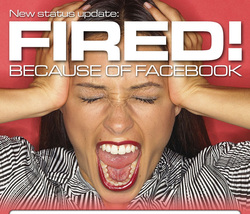 We now have so many more connections. Our networking abilities have been greatly advanced--but in reality are our relationships weaker because we have so many and it is so hard to keep up with our vast amounts of connections? I believe in some sense this is true, I just do not know if this flaw outweighs all the cultural economical and social benefits. Social networking sites are not just for the young anymore. Facebook especially hosts millions of users of all ages. It keeps various forms of relationships in communication. I found it interesting when the author claimed that this is not simply entertainment but an edifying experience in teaching users about the rules of social space. It's unfamiliar territory and much different than face to face or voice to voice interaction. A prime example is a breakup over Facebook it has the ability to distribute personal information that one party may be less inclined to preach all over town. there is something disconcerting and invasive about this. It can professional hurt a user as well. The amount of privacy we think we have on social networking sites is far less than we think and we must be careful about the content posted because the consequences can be dire.
Links: http://applicant.com/how-to-lose-a-job-via-facebook-in-140-characaters-or-less/ http://www.thebostonchannel.com/r/24670937/detail.html Discussion Questions: Do you think online relationships are humanly satisfying? What components do you miss out on? Would you spend more of your day face to face if you cut back
0 Comments
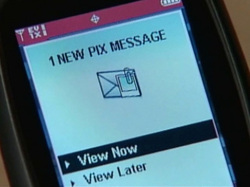 "The People's Net" challenges the reader to look at the internet from a less commercial and investment perspective and more as a new form of life--what it originally was formatted for. Once it became evident that the internet was taking up time from alternative polarities, such as television, it became enterprise worthy. The goal was to get people's hands "off the keyboards and onto the mouse." The wonders of the internet led to great new opportunities, dispersement of news, an abundance of career opportunities and new internet sensations were born. The changes online are not something to mourn over but something to rejoice in. The best part about the internet is that it allowed us to interact with one another for free. Social Currency is how Rushkoff describes it; similar to new records or jokes--they help break the ice. at a party. The internet creates more social interaction for all ages and we love it! The chapter compares it to sex. No one wants to have sex with the actual device but with each other, and the interaction all these gadget provides helps us to do so.
Links: http://en.wikipedia.org/wiki/Social_currency http://www.fastcompany.com/magazine/145/next-tech-five-steps-to-social-currency.html Discussion Questions: How does this social currency through wireless devices hurt society as much as it helps society? How have these interactions worked for the Christian community? 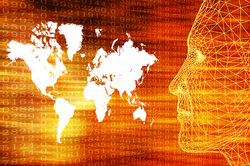 Identity Crisis:
This is a study about culture and flexibility. Online personas are a great way to have multiple personalities, giving people outlets to express the many sides they have to themselves. "Each reality of self gives way to reflexive questioning, irony, and ultimately the playful probing of yet another reality" This was a quote I found interesting. With each personality we can create online we are working on creating another reality for ourselves. Your online decisions, posts, likes and dislikes create an identity that people can judge. This information could be its own identity as well as many additional identities on and outside of the Web. This is the issue the web poses for identity. It's vast ability to allow multiple personas devalues a person's true identity. They Call Me Cyber Boy: This article disuccses how the cyber world came about. Mostly, he speaks of drugs and hippy movements that drove them to remain such a free thinking community, but he also describes how it changed the world of business. He was criticized for his cyber-self once and now is praised and questioned about his ingeniousness. Links: http://www.biography.com/people/steve-jobs-9354805 http://www.well.com/ Discussion Questions: Do you think we would have the online technological world we have today without the drug use that went on in the process of creating it?Is it Christian to have multiple identities online? What are the ethics and moral issues that deals with the identity crisis? 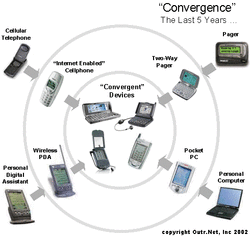 The introduction introduces how old and new media converge. A prime example, Sesame Street and Osama Bin Ladin. This book is about "media convergence , participator culture, and collective intelligence." The author discusses the grave importance of media change and the revolutionary changes over time in cultural media. he further speaks of what he calls Black Box Fallacy; black box means that in some way, we will receive it through a black box, and what makes it a fallacy is the fact that it reduces media change to technological change.. It takes away the culture in the matter. The convergence of media does not simply deal with technologies. convergence applies to the technologies, cultures, genres, markets, etc. and the audience. It occurs mostly when people take media into their own hands. The results can be amazing or they can be detrimental to the benefits of media convergence. Extension, synergy and franchise are pushing media industries to embrace convergence. There is no one group that controls this convergence, but audiences empowered by technologies are contributing to their passage of culture.
Links:http://en.wikipedia.org/wiki/Technological_convergence http://www.buzzle.com/articles/what-is-media-convergence.html Discussion Questions:Where do you contribute to the media convergence?What benefits or pitfalls are there to media convergence?  Ito
February 20, 2012 Analysis: Young people in the United States today are growing up in a "media ecology" where the digital and networking worlds are playing pivotal roles. Study 1.1 shows us the reality of technologies in households of children ages 8 to 18 and how frequently they use these technologies (quite frequently). In fact, they frequently are using more than one device at a time--It sounds excessive, but in reality, we all do it. However, media access and use varies with different demographics. The rapid increase in digital and new media usage is astounding--in the past three years it has almost doubled and the youth are big contributors. The studies in this article have taken a categorical approach to measuring their research. This moves it away from a focus on media platform and they believe it to be more effective in analyzing social and cultural patterns. Their philosophy is more ecological than categorical. In 1.2 it discusses the life of a younger girl from El Salvador. Her mother is skeptical of the computer and the internet because she is not just a foreigner to the country but one to the media and technologies provided. Michelle ends up helping her mother use the internet to her advantage and this culturally makes a great difference. Kids are teaching their parents how to navigate efficiently on the internet and this causes for a parent-child relationship change. We teach older generations about technology and with their generation of youth there was not the same opportunity. Links: http://apps.americanbar.org/lpm/lpt/articles/mgt08044.html http://www.media-ecology.org/#/news/ Discussion Questions: how much time should kids spend online? How much is benefitting them and how much is wasteful? Should digital media become part of school curriculum? Should there be classes taught on safe and effective online usage for youth? Maria Bustillos
February 17, 2012 This article starts by pointing out the amount of credible people that support the use and credibility of Wikipedia. What keeps Wikipedia from being a source of random information is the guidelines that a large group of administrators that work to keep the site truthful. They contribute to something good by monitoring the content. The speed of Wikipedia in relation to an alternative encyclopedia is a great advantage. It can keep up with new developments far better than the average encyclopedia and the citations are much better for studying purposes. Wikipedia allows us to learn from each other and communicate information far faster than before. According to David Lochhead, our machines alter the way in which our senses feed us information. Wikipedia is a machine that does just this. There can be concerns and skepticism but if monitored closely and managed correctly, Wikipedia can do more good than bad. Links: http://en.wikipedia.org/wiki/Main_Page http://wp10bristol.posterous.com/ http://tosh.comedycentral.com/blog/2010/07/06/how-to-crash-wikipedia/ Discussion Questions: How credible do you find wikipedia? Do you use it in your research? Are we devaluing important credible figures? 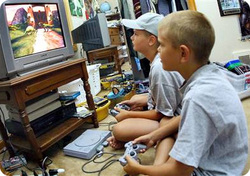 Page 3-12 and 12-25
February 13, 2012 The first chapter of this book discusses how fundamentally different our generation functions. We spend so much time in the digital world because it is what we have grown up with and we process information differently. He calls us "Digital Natives". Natives can process information fast and Digital Immigrants don't always appreciate this new skill. This chapter addresses the question about which methods work better. Future of Legacy? I believe it can be both. Legacy must adapt to future, but future must not entirely trump the power of past learning methods. Chapter two discusses the evolution of our brains and how the way we are wired and think changes over time. The introduction of video games and television both proved this to be true. It further discusses what has been lost and gained through the change in our digital world and how can educators reach their students as well as they used to. Links: http://www.pamf.org/preteen/parents/videogames.html http://www.adultlearn.com/video-games-education.html Discussion Questions? It is evident our generation is more digitally savvy but are there any qualities or abilities older generations have over ours? How should educators best reach todays's generation? Future, Legacy, or both? Katelyn Beaty
February 10, 2012 Articulation of Thesis: the thesis of the article is this: "All human artifacts, from words to wheels to Wikipedia, together act like a living, breathing organism that reflects something of the Divine." The point of this article is to show that yes, despite the evil this "technium" brings there is much more good and divine purposes for it. However I do not agree with the article when it speaks about how humans can surprise God. We cannot surprise him, but it is our job to please him with our work. Kevin discusses minimizing the technologies we use to focus on the ones that bring goodness and love but at the same time having an array of technologies that suit certain individuals best to shine God's goodness. Kevin speaks about the Amish life and surprisingly does not discredit their lifestyle, but he does acknowledge a price: their lives are limited without this technology. Through technology we have experienced so much radical change to sexist, racist, and cultural problems and these are Godly gifts. Links: http://www.majiroxnews.com/2011/09/04/smart-phone-fever-threatens-to-overload-mobile-phone-networks/ http://www.growingupamish.com/media3.htm http://www.wired.com/ Discussion Questions: Do you buy his opinion about robots? Do you think it is possible to make free-willed robots? How do you feel about Kevin's opinion of God, free-will, and technological advances? Lynn Gross
Pages 26-54 February 6, 2012 Articulation of Thesis: The greatest change in media today is who controls it. The public is much more in control of the media than any other group of people. I find this statement to be extremely true--cell phones, home video cameras, Ipods, etc. (user-generated media) has made media that much more "accessable and democratic" (27). In the 1960's IMP's were used to translate data into computers so it can communicate. Barran's networks consisted of centralized, decentralized and distrubuted networks. The creation of email changed our communication world drastically as well. Publically, communication was introduced to a formal, fast information and instantanious availibility. We cannot convey our tone in emails and we must be more careful with our language. These new forms of media have expanded our ability and speed of coding, yet it is still slower and more formal than a text or tweet. http://legal.entrepreneur.com/2008/07/14/the-legal-implications-of-email-etiquette/ http://abcnews.go.com/US/video/teen-battles-burglar-with-cell-phone-15354930 http://boingboing.net/2011/03/28/paul-baran-internet.html Discussion Questions: Will email become obsolete eventually? What are some ways you know of that are like Napster but are still legal? Lynn Gross Pages 2-24 February 3, 2012 Articulation of Thesis: This section of the book focused on the evolution of media from cable television onward. VCR's changed the game as well as video gaming in arcades and the use of corporate video and organizational TV. In the 1980's, television as a form of communication and the prime time share of audience started to decline. Broadband, DVR, and the internet were three of the many sources that sparked this decline. It was assumed that the internet would damage the amount of time households spent watching TV but in fact it did not. It became two different sources of programming. Television is seen as a companion. When we are home alone, it is common to put on the television to make ourselves feel in the presence of company. All of this electronic media connects us. News connects us because it is situations that affect all of us, and email or texting personally connect us to each other. Today, without gatekeepers, our communication has had great impact of societies. Links: http://morethanshelter.blogspot.com/ Discussion Questions: Where do you feel that media will take us next? What commonly used tool will soon look like a VCR or a Walkman? This article discusses all the ways electronic media connects us, but does it separate us just as much? |

 RSS Feed
RSS Feed